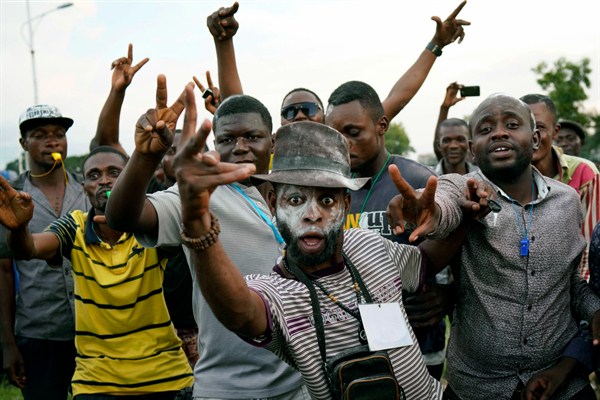Editor’s Note: Every Friday, WPR Senior Editor Robbie Corey-Boulet curates the top news and analysis from and about the African continent.
For the past several years, political debate in the Democratic Republic of Congo has revolved around a simple phrase: “Kabila must go.” Opposition politicians, security analysts, human rights campaigners and rebels all embraced this position, contending that the country would not accept any extension of President Joseph Kabila’s rule, which began in 2001, despite his continued attempts to subvert the constitution. As Mvemba Phezo Dizolele wrote in a piece about a year ago for African Arguments, “The longer he stays in office, the greater the risk for more violence and instability.”
This week, the path toward the end of Kabila’s time as president became somewhat clearer. On Thursday, Congo’s election commission announced, to much surprise, that Felix Tshisekedi had won the long-delayed presidential election held on Dec. 30, defeating not just other, stronger opposition candidates but also the ruling party’s hand-picked successor, Emmanuel Ramazani Shadary.

